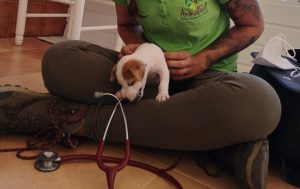Canine parvovirus is an infectious viral disease affecting dogs. It is a very serious and in most cases lethal disease caused by canine parvovirus (CPV).

It usually affects puppies from around 4-6 weeks of age, although there is increasing scientific evidence that it affects apparently healthy adult dogs.
It is a VERY contagious virus, and in the case of acquiring the disease, the incubation time is very short (between 5 days and a week we can start to see symptoms). Contagion occurs by direct oronasal contact of an infected dog with another, through contact with the faeces of an infected dog, or also during pregnancy the mother can transmit it to her puppies. It is precisely contact with faeces that can be the most dangerous, because if our dogs go for a walk in areas where other infected dogs have previously been, they can become infected at that moment.
When our dog becomes infected, the virus begins to affect the digestive system in particular, causing significant diarrhoea and severe gastroenteritis. But it can also affect the heart, bone marrow, liver and respiratory system.
The symptoms are very recognisable:
- Diarrhoea (usually haemorrhagic).
- Vomiting
- Fever
- Hyporexia or loss of appetite
- Apathy
- Acute weight loss
- Severe abdominal pain
- Septic shock
- Jaundice (yellowish mucous membranes)
- Dehydration
- Death

In the case of adult dogs it is more difficult for all these symptoms to occur simultaneously, and therefore it is much more difficult to make an early diagnosis.
The diagnosis of the disease is made by detecting parvovirus in the patient’s faeces, an analysis that our service can do from the comfort of your own home, with results available in less than 15 minutes. In addition, general blood tests (biochemistry and haemogram) are recommended to assess whether there is any damage caused by the virus.
There is no treatment, only symptomatic treatment with hospitalisation in an intensive care unit.
The best weapon we can use to protect our dog is vaccination, as in this way we are helping his immune system to defend itself against the presence of the virus.
.


